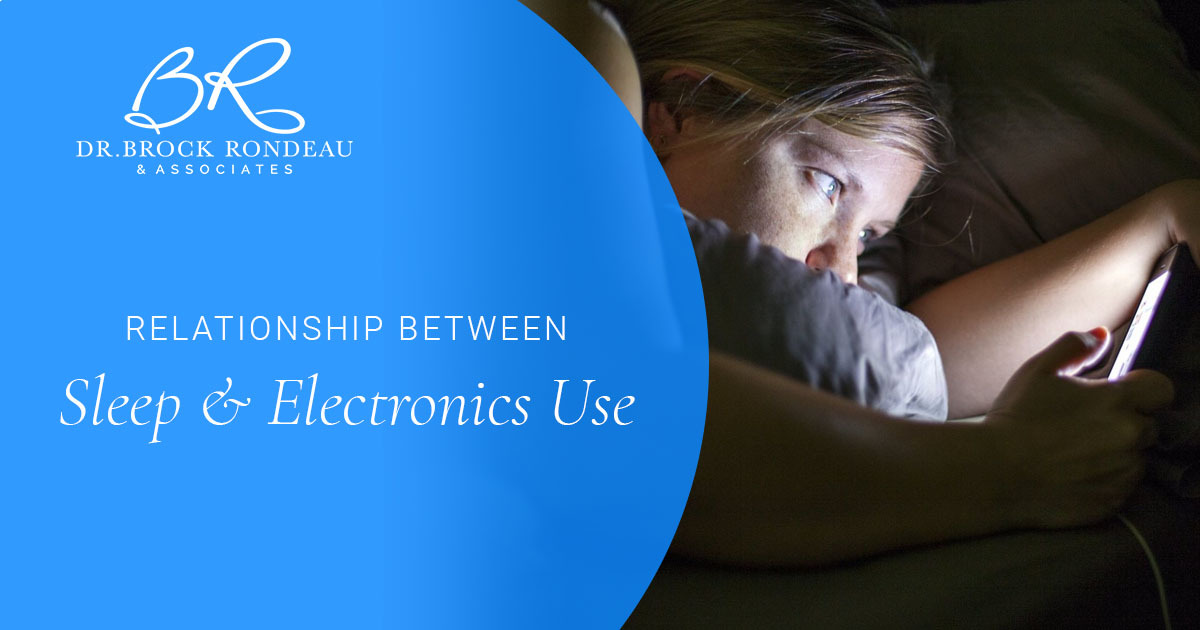Everywhere we turn, there seems to be some form of electronic device vying for our attention, and more often than not, the device wins out. Proof of this is the neverending store lines when a popular new cell phone or video game system is released. With the situation over the past few months, we are all finding ourselves using electronics more often. Important business meetings around a conference table are now Zoom meetings, and happy hour after a hard work day is now Google Meet with friends on a Friday night. The added screen time has the potential to put a damper on one area of our lives—sleep.
If you are someone who struggles to settle down to sleep, suffer from insomnia or a sleep disorder such as sleep apnea, your increased screen time may be a culprit. It is optimal for our bodies and mind to feel relaxed before falling asleep for the night. The use of electronics can stimulate the mind, making it difficult to settle, relax, and have a full night’s rest. Overusing electronics can suppress the release of melatonin, the sleep inducing hormone, creating a night of unrest. The lack of melatonin can affect REM sleep, or rapid eye movement sleep, leaving you feeling less alert the following morning. Instead of living on a diet of coffee to stay awake, there are numerous ways to limit your electronics use and promote healthy sleep habits.
Tips to Unwind and Encourage a Full Night’s Sleep
It’s easy to assume that picking up your cell phone and scrolling through social media is a good way to pass the time before resting your head on the pillow for the night. As mentioned earlier, it is counterproductive if you struggle with sleeping or suffer from a sleep disorder. There are a number of natural methods to help ensure a relaxing and full night’s sleep.
- Turn off electronics at least an hour before bedtime.
- Avoid heavy meals too close to bedtime.
- Steer clear of alcohol and caffeine before bed.
- Set a schedule for bedtime each night.
- End the night with a warm bath or shower.
- Read before bed to unwind and relax, being sure to use a physical book and leave the e-reader and tablet for daytime reading.
If you have been struggling with your sleep and think you may have an underlying condition like sleep apnea, please contact our Ontario office today. We are always happy to hear from you.
Dr. Brock Rondeau and Team Rondeau






